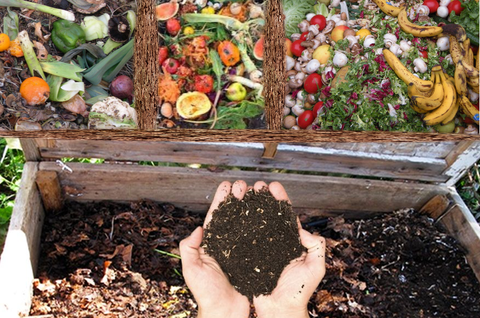
Save money on your waste bills with home-composting and also improve your garden - win, win.
What is composting?
Composting is a natural way to recycle organic material such as kitchen scraps or garden waste. Microorganisms, including bacteria or fungi, feed on the waste and break it down into a dark crumbly mass called compost. Compost is rich in plant nutrients and you can dig it into soil to improve your garden.
You can have a compost heap in your garden or you can make or buy a compost container. You can buy containers from garden centres or hardware shops.
Composting at home
- Prepare your equipment:
-Choose a container that is the right size for your household. If you choose a bin with a base, it should have holes in it to allow worms to go in and moisture to drain out.
-You will also need a garden shovel or fork for turning and removing the compost.
- Decide where to put it:
-Set the bin on grass or earth so worms can get in from below.
-Raise it 1cm to 2cm off the ground by putting a few flat stones under the base. This will stop the holes becoming blocked.
-Place it not too far from the kitchen door – near enough to be convenient but far enough away to avoid smells.
-Choose a sunny spot as warmth will speed up the composting process.
-Protect the bin from heavy rain. If the compost becomes waterlogged, it will stop decomposing.
- You can add activators to your bin if you want to speed up the composting process, but they are not strictly necessary.
- Start your compost bin in the spring, summer or autumn, as composting slows or stops in winter.

